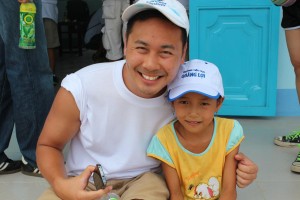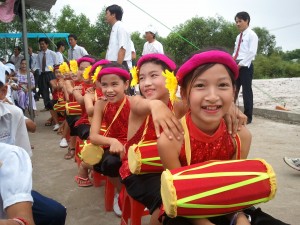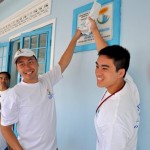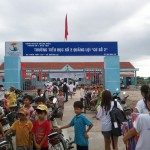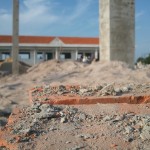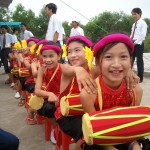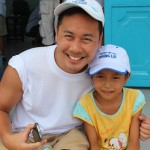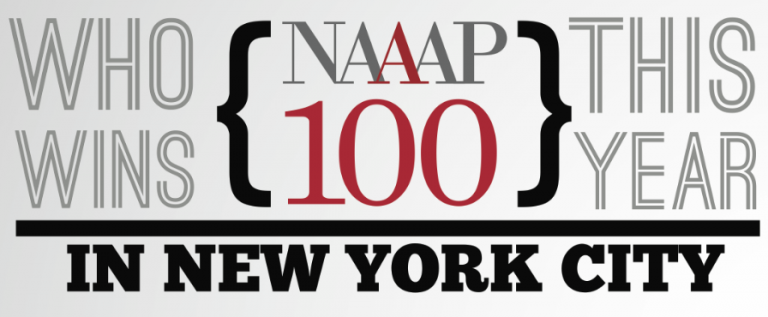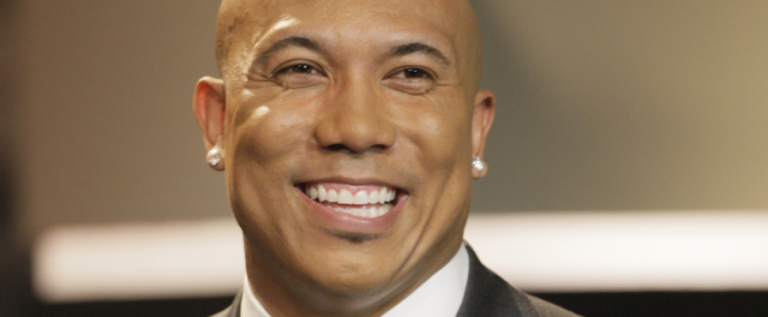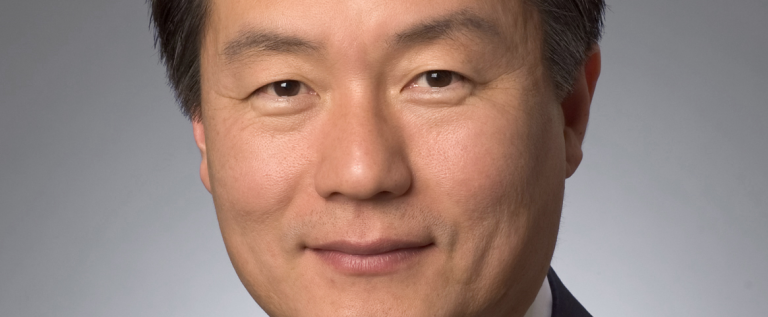Students Building Schools: R.E.A.C.H.’s Andrew Poon
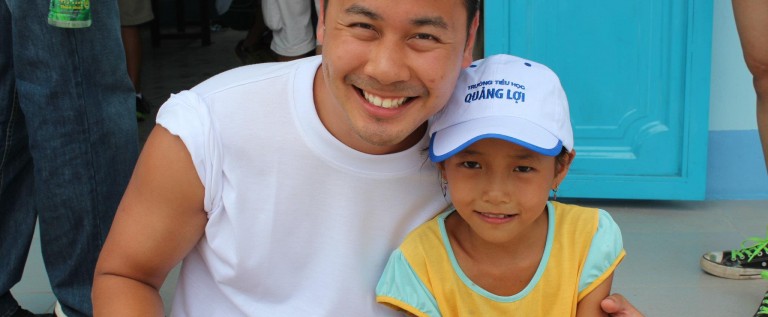
When Andrew Poon graduated from high school, he remembered thinking to himself, like many graduates: “Now, I’m going to change the world.”
Three years later, he took steps to do just that, through the foundation of his non-profit organization, R.E.A.C.H. An acronym for “Relaying Empowerment – Anything Can Happen,” R.E.A.C.H. provides educational opportunities to communities in need through the implementation of student leaders. Its methods parallel its conception—Poon first created the organization while a student himself at North Carolina State University in 2008.
“The reality of it was that I woke up three years later and realized I hadn’t done anything,” said Poon. “Then I also realized as a college student, I had all the resources to actually do something. I called a meeting with a sister club that UNC and Duke had and said, ‘Hey, do you guys want to do something big? Do you want to change the world?’ and we got together and started.”
As president of his university’s Asian Student Association, Poon’s desire to make a positive global impact led to the founding of an organization that provides schooling to the underprivileged, particularly in Asian countries such as China and Vietnam. In addition to working to breed leadership, R.E.A.C.H. finances, or is the primary donor of, a new school in East Asia each year.
So far, R.E.A.C.H. has succeeded in building both a core team of volunteers and three schools (their first in GuangXi, China), as well as a promising future for creating positive change.
From School Dream to Dream Team
Poon’s vision has expanded into a team of volunteers with eclectic backgrounds, enabling a multitude of talents to work together. Speaking with some of the organization’s core members, it becomes apparent that the team was brought together from diverse paths and interests. For example, the organization’s Vice President of Public Relations, Michael Cherry, spoke about what led him to R.E.A.C.H. from his own organization, More Than Dance.
“More Than Dance is an organization that serves people through our talents and passions,” said Cherry. “We hold dance workshops and through the money we raise, we donate it to a charity cause. Our first few workshops were donated to R.E.A.C.H. and that’s how R.E.A.C.H. and I got connected.” Cherry, like Poon, is a North Carolina State University alumnus and was personally chosen by Poon to help lead R.E.A.C.H.
Other members on board, like Yi Xiang, Chief Operating Officer of R.E.A.C.H. and former standing officer for the Asian Student Association at Duke University, joined R.E.A.C.H. in order to “branch beyond being a community focal point.”
“What drew me to R.E.A.C.H. was pursuing the identity of a group like the Asian Students Association,” said Xiang. As for the members themselves, Xiang says, “The more I worked with R.E.A.C.H., the more I realized it gave people more opportunities to take on leadership roles. They weren’t empty titles; you were a lot more involved with R.E.A.C.H., whether it was researching for charity, finding out more about how operations impacted people overseas and maximizing fundraisers on site.”
“Everybody that works for R.E.A.C.H. is a volunteer. It comes down to three things: if they have the skill, since everyone on our board is from a different background doing completely different things in their life right now, the passion, which is sometimes even more important than the skill, and their personality,” describes Poon.
Through a solid core, R.E.A.C.H. has been able to channel its energy into organizing fundraisers, selecting partners, and, eventually, building schools.
From Dream Team to Dream Schools
The staff of R.E.A.C.H. is able to fund the building of these schools through a variety of methods: from charity banquets, to events with local restaurants, to seasonal holiday grams, to car washes, to dance workshops. However, the bulk of fundraising happens through large Asian Cultural Shows hosted by the staff’s alma maters. The events not only bring in revenue for building schools, but also motivate students to get involved.
“If it drives action, it is success,” said Poon of the fundraisers. “Even events that do not bring out as much money are still very successful because these students are really able to get excited.”
Perhaps even more successful at drawing in supporters is an annual conference hosted by the organization. All universities involved with R.E.A.C.H. are invited to attend. The conference also attracts speakers and entertainers passionate about the organization‘s goals.
“They see this one change in particular that they want to see in the world and that is what we try to do in that conference,” said Poon of the speakers. “We try to bring people that have successfully linked those two things and explain that and talk about it.”
In addition to the fundraising process, the staff facilitates a rigorous process of elimination and selection before building a school each year. Before partnering with an organization, the staff conducts a critical overview of their background, taxation forms, how they spend money, and their willingness to work in tandem with the goals of R.E.A.C.H.
The selection process includes room for direct student input and involvement. After the staff has brainstormed a list of potential partners, the output is presented to the student representatives of their affiliated schools for a vote. In addition, a fundamental prerequisite for their partners is government backing, an aspect that R.E.A.C.H. looks for to prevent resources from being cut off during the construction process. For the past few years, R.E.A.C.H. has partnered with Sunflower Mission, a Houston-based, non-profit organization that builds schools in Vietnam.
Xiang emphasizes how R.E.A.C.H. focuses on finding areas where the potential schools will have the greatest impact: “We were looking at three different projects in different provinces and provinces where there was sufficient economic growth after the students graduated,” he said. “That impact is measured not only in the number of people, but also how likely it will contribute to the local economy.”
Poon had one critical piece of advice for aspiring entrepreneurs seeking positive change: “My personal catch phrase is that the only thing that limits our achievements is our aspiration. It’s enough to have one passion and one change you want to see…and if you can realize those two things, then the only thing stopping you is your own ambition.”
For more information on R.E.A.C.H., visit their website at www.reachforeducation.com
- Unveiling of the school plaque in Hue, Vietnam.
- Completed primary school in Hue, Vietnam
- R.E.A.C.H.’s Vision: To change the world by transforming passion into action
- Student dancers at the opening ceremony at a primary school in Hue, Vietnam.
- Andrew Poon with one of the young students attending REACH’s 2012 school.

